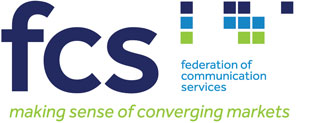Posted on 02/02/2016
New Best Practice code on stolen devices launched for the mobile phone industry
The Federation of Communication Services (FCS) has released a new landmark Code of Practice for gadget recyclers, to protect both consumers and reprocessors from crime.
This extends and updates the industry’s previous stolen phone strategy, released by the Telecommunications UK Fraud Forum (TUFF) in 2010. The TUFF Code was not fully addressing all the issues of legal compliance, so an industry-authored refresh was commissioned by the FCS, on behalf of the recycling community.
The new code aims to:
Give consumers confidence that the phones they are buying come from legitimate sources
Provide a clear route for stolen phones to be returned to their owners
Reflect modern market practices
Close a loophole in the previous Code which inadvertently left recyclers open to the risk of being charged with handling stolen goods
The document was released this week, after 24 months of consultation with recyclers, retailers, insurers, network companies and the police. The GSMA are also aware of the new proceedings.
At launch, all recycling companies which are members of the FCS Communications Environmental and Regulatory Consortium (CERC) have already committed to the new code. Overall it has received the thumbs-up from companies who account for 80% of mobile phone and tablet reprocessing in the UK.
Chris Pateman, chief executive of the FCS, said:
“The industry discovered itself to be in a position where scrupulous compliance with the existing Code of Practice still fell short of their legal responsibilities. It doesn’t help the public, the police or the reprocessors to discover there’s a risk that recyclers could be deemed to be trading in stolen goods.
“As an industry, we have now written a Code of Practice that gives everyone in the supply chain confidence they can fully meet their legal obligations. By working together with insurers, police and retailers, we have simplified procedures and avoided the risk of putting extra costs into the process.
“The Code benefits consumers in two ways. Firstly, retailers have the confidence reprocessed handsets have not been stolen. Secondly, victims of crime or loss know there is no easy route for anyone to make money by selling their device on to recyclers. Plus, it gives reprocessing companies the confidence they can be legally compliant, without restricting the way in which they run their individual business.”
Andrew Beckett, director of gadget recycling comparison site CompareMyMobile, said:
“With over 100 small recycling businesses operating in the UK, the need for a Code of Practice is long overdue. It provides a framework for recyclers to work to, and gives reassurance to consumers that any stolen devices will be correctly handled and not sold on for profit. CompareMyMobile will ensure that every recycler we list will adhere to this new Code of Practice.”
Phil Henchoz, chief executive of the Global Device Network (GDN), said:
“The Global Device Network has been working with a number of mobile phone insurance partners, multiple retailers and various law enforcement agencies to develop a system to help legitimise all transactions with used devices (phones especially). The introduction of the FCS Procedures is extremely exciting for us and the industry as a whole, as adherence to the processes to follow when dealing with used goods will expedite the reduction in mobile phone (and other device) related crime and fraud. The Global Device Network will be supporting these procedures throughout our base.”
The new code — FCS2000: 2016 — also covers important additional areas like inter-company and international trading.
